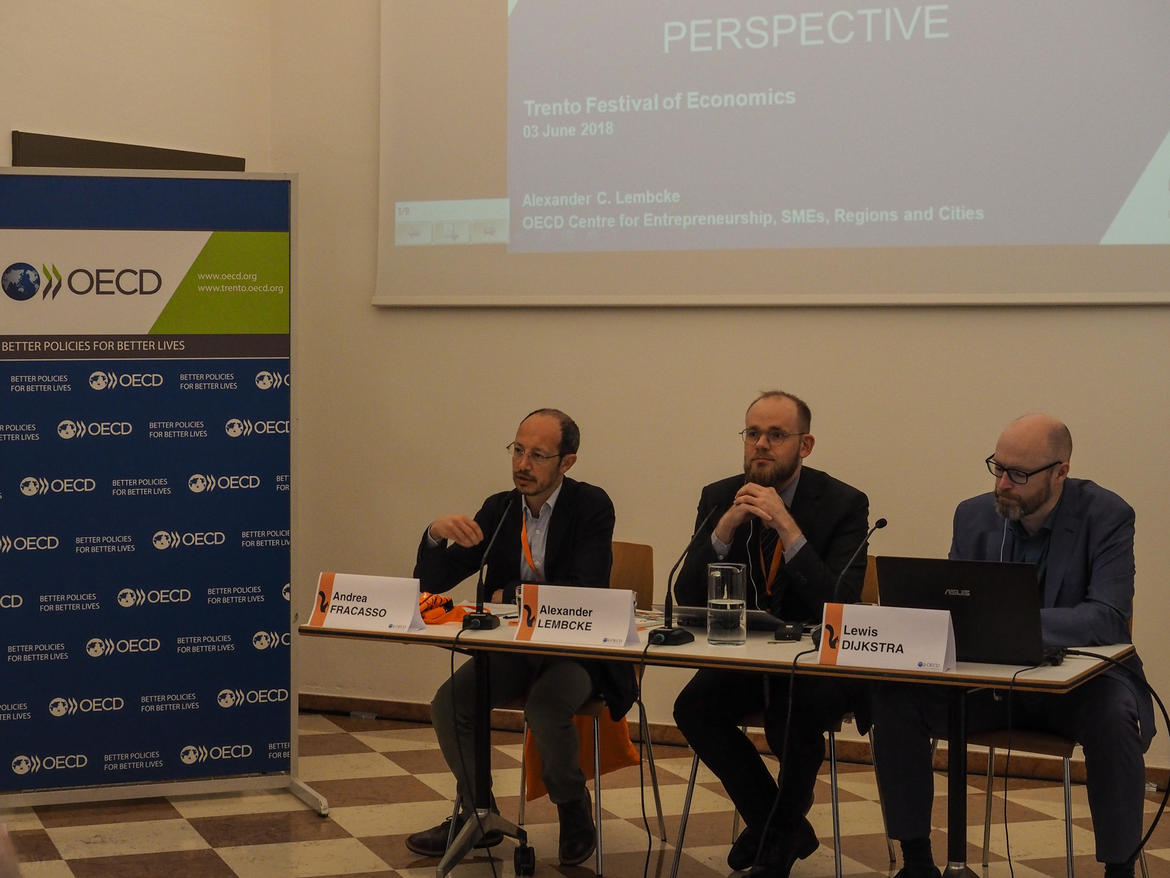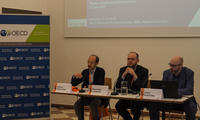
Territorial inequalities and the factors enhancing and hindering regional development were the focus of the round table organised by the OECD Trento Centre in the framework of the fourth day of the Festival of Economics.
Lewis Dijkstra, Head of the Economic Analysis Sector of the Directorate-General for Regional and Urban Policy in the European Commission, and Alexander Lembcke, Economist and Policy Analyst at the OECD Centre for Entrepreneurship, SMEs and Regions and Cities, have illustrated development perspectives, cohesion policies and good practices. The panel was moderated by Andrea Fracasso, Professor of Economic Policy and Director of the School of International Studies, University of Trento.
Since the 2007 economic crisis, regional disparities in Europe have increased reaching the levels registered in the 80s. Economic inequalities between and within countries affect quality of life and employment, explained Dijkstra. Economic development is not linear and sometimes needs support. Mobility of labour forces across regions is not the solution. How can we then help underdeveloped regions? Bureaucracy and administrative fragmentation may be an obstacle for entrepreneurship. The quality of governance is also fundamental. If public investment is misallocated, as in the case of “white elephants” or decisions driven by private interests (useless high speed train lines and over-dimensioned airports), development struggles.
The OECD place-based policies approach, presented by Lembcke, agrees with the European Commission view and proposes strategic sectoral diversification, a focus on territorial strengths and local uniqueness, an integration of local actors (municipalities, metropolitan areas, firms, policy makers) in implementing development strategies, as the case of the city of Tampere.
https://twitter.com/economicsfest











